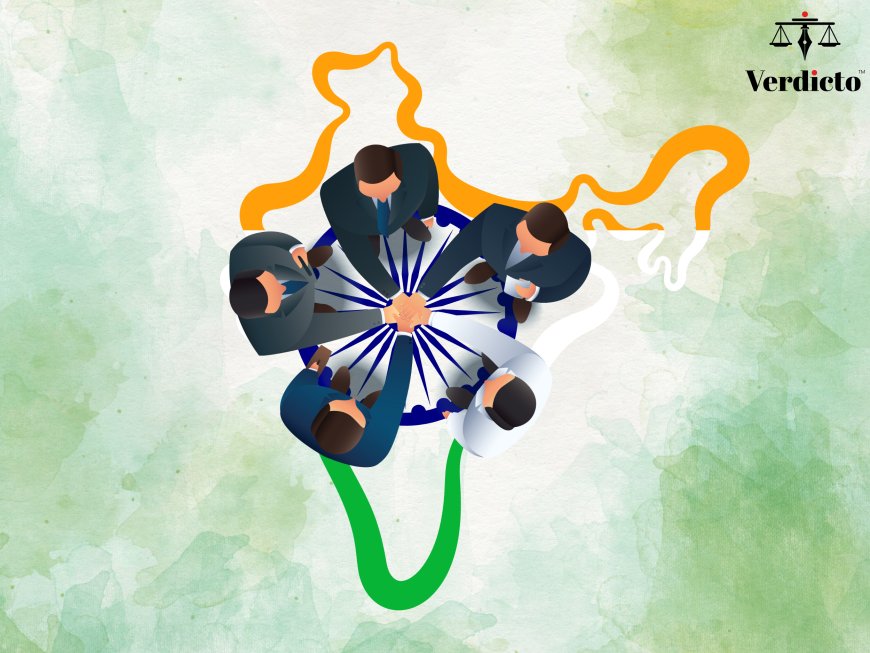India’s All-Party Delegations Actively Engaged in Global Diplomatic Mission Following Operation Sindoor Fallout
Following the fallout of *Operation Sindoor*, India has mobilized all-party delegations to engage in a global diplomatic mission, aiming to address international concerns, strengthen alliances, and mitigate geopolitical repercussions.

In a rare show of political unity, India has dispatched seven all-party parliamentary delegations to 32 countries and the European Union headquarters as part of a ten-day diplomatic mission to present India’s stance against terrorism in the wake of Operation Sindoor, following the devastating April 22 Pahalgam terror attack that killed 26 civilians.
Comprising 51 political leaders across parties and eight former ambassadors, the delegations are being led by senior MPs Baijayant Panda (BJP), Ravi Shankar Prasad (BJP), Sanjay Kumar Jha (JDU), Shrikant Eknath Shinde (Shiv Sena), Shashi Tharoor (Congress), Kanimozhi Karunanidhi (DMK), and Supriya Sule (NCP-SP). The campaign, coordinated by Parliamentary Affairs Minister Kiren Rijiju, aims to build global consensus around India’s “zero tolerance” approach to terrorism, especially those emanating from Pakistan.
A Blitz of Engagements
From Riyadh to Rome, Jakarta to Johannesburg, the delegations have engaged with heads of state, foreign ministries, parliamentary committees, and Indian diaspora communities. Each team has conveyed New Delhi’s unwavering position: that terrorism is a threat to global peace and must be met with united international resolve.
In Saudi Arabia, Baijayant Panda’s team received firm assurances of support, with Minister of State for Foreign Affairs Adel Al-Jubeir reiterating Riyadh’s commitment to counterterrorism cooperation. The delegation, which included MPs from BJP, AIMIM, and even independent nominees, met senior officials from the Shura Council and the Saudi-India Friendship Committee. Panda described the exchanges as “meaningful” and rooted in shared strategic interests.
In Greece, Kanimozhi Karunanidhi’s group engaged in detailed deliberations with Deputy Foreign Minister Tasos Chatzivasileiou and parliamentary committees. The Greek side welcomed India’s proactive stance and reaffirmed their shared commitment to global peace.
Meanwhile in South Africa, Supriya Sule led a delegation that met parliamentary leaders and addressed the Indian diaspora. Sule invoked Mahatma Gandhi’s South African legacy and framed India’s response to terror as an extension of the country’s foundational values. AAP MP Vikram Sahney connected the struggle against terrorism with South Africa’s own experience of fighting oppression and discrimination.
Indonesia, France, Panama Echo Support
In Jakarta, the delegation led by Sanjay Kumar Jha (JDU) found resonance with Indonesian leaders, who condemned the Pahalgam attack and backed India’s counterterrorism policy. The group also held productive talks with ASEAN Secretary-General Kao Kim Hourn and Indonesian parliamentary leaders.
France, historically a strategic ally, reaffirmed its solidarity. During a meeting with French senators, Ravi Shankar Prasad’s team emphasized the need for the democratic world to speak in one voice. French officials, including Senator Jacqueline Eustache-Brinio and Thierry Tesson, equated terrorism to a “cancer” requiring global eradication.
In Panama City, Shashi Tharoor’s delegation was assured of support by the National Assembly. In Guyana, President Irfaan Ali expressed strong support for India’s fight against terrorism, describing the Indo-Guyanese bond as one of “blood and generations.”
The Larger Diplomatic Context — Message or Messaging?
While these visits are intended to project India’s unified stance on terrorism, critics have raised sharp questions over the nature and necessity of such outreach.
Analysts argue that great powers do not typically dispatch multi-party delegations to explain military actions. Neither Russia during the Ukraine war nor the U.S. during the Iraq invasion felt the need for such campaigns. Even Israel, frequently under global scrutiny, has not employed all-party missions to justify its actions in Gaza. Some view this as India entering a phase of “propaganda diplomacy,” aiming to manage both global perception and domestic political optics.
With most countries visited already having diplomatic representation in New Delhi, skeptics question whether the extensive delegations offer added value. The External Affairs Ministry could have engaged ambassadors through formal channels, say observers.
What raises further concern is that the global reaction to the Pahalgam attack has been largely cautious. Apart from Israel and Afghanistan’s Taliban-led regime, few countries have directly named Pakistan as the perpetrator. The G7 condemned the attack but stopped short of assigning blame. Critics argue that the Modi government might be attempting to build a narrative rather than alter diplomatic realities.
Moreover, this campaign might inadvertently internationalize the Kashmir issue—something successive Indian governments have consistently avoided. If foreign counterparts ask about the root causes of terrorism or about evidence linking Pakistan to the attack, Indian delegations may find themselves treading diplomatically dangerous waters.
Political Unity or Political Co-optation?
The bipartisan composition of the delegations — including leaders like Tharoor, Sule, Kanimozhi, and Owaisi — projects a rare image of national consensus. But it has also sparked introspection within the Opposition.
Critics within Congress have lamented the lack of internal consultation before nominating Shashi Tharoor and Manish Tewari. Others see the delegations as a tool to co-opt the Opposition into endorsing the Modi government’s post-Operation Sindoor narrative.
By participating in the delegations, the Opposition risks losing its leverage in Parliament to question the government’s intelligence lapses, military strategies, or the wisdom of its “new normal” doctrine that equates any terror act with a potential act of war.
“This is not just foreign policy outreach — it’s political messaging wrapped in diplomacy,” said a senior Congress leader on condition of anonymity. “It neutralises our domestic critique by making us a stakeholder in the government’s line.”
What Lies Ahead
The Modi government appears to have scored a domestic political win — framing itself as both assertive and inclusive, with even its critics on board. Whether this campaign can shift international perception, especially in key capitals like Washington, Brussels, and Tokyo, remains to be seen.
India’s long-term success in countering cross-border terrorism will not rest on diplomatic delegations alone, but on sustained strategic clarity, domestic accountability, and credible international partnerships.
As the delegations continue their tour, the central question remains: can diplomatic pageantry compensate for the complex realities of geopolitics, and at what cost to India’s long-term credibility and internal democratic scrutiny?







